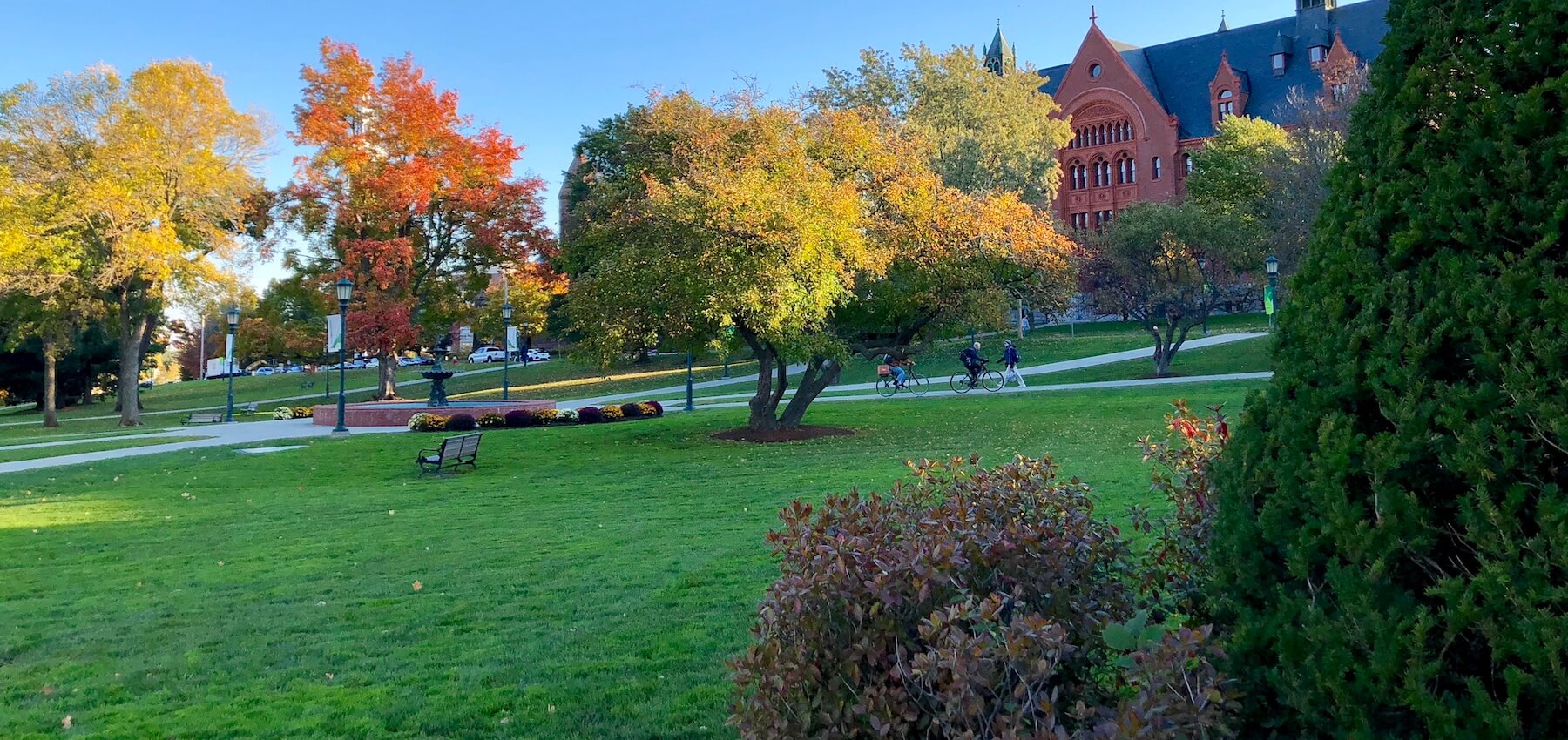Program Overview
UVM's PhD in Counselor Education and Supervision prepares counseling professionals seeking to enhance their careers in leadership, research and scholarship, advocacy, and the education and supervision of counselors. We prepare diverse professionals to become critically conscious advanced clinicians, educators, clinical supervisors, scholar-activists, and leaders in various academic and clinical settings.
Designed for students with a master’s degree in counseling or counseling-related fields, our program is distinguished by a commitment to develop critically conscious scholar-activists in the counseling profession.
Our graduates will demonstrate an understanding of the intersectionality of diverse social, economic, and cultural factors impacting the mental health and wellbeing of global communities and the subsequent implications these factors have for the training and practice of professional counselors, counselor educators, and clinical supervisors.
The curriculum includes face-to-face coursework, research opportunities, internship experiences, and a cohort model to curate a community where students support and learn from each other. The 75-credit hour program of study (pdf) can be completed either full-time in four years or part-time in six years.
Internships
Engage in 600 hours of internship work in required areas of teaching, supervision, counseling, and one additional area of choice.
For the supervision internship, you will supervise master’s degree students in school or CMHC programs who are in either practicum or internship.
For the teaching internship, you will teach or co-teach undergraduate or master’s level counseling courses for a minimum of one semester.
Counseling and leadership/advocacy internships are collaboratively designed with faculty.
Research Opportunities
There are multiple ways to get involved in research. You will complete 12 credit hours of research coursework where class projects may expand to research projects. Faculty often invite students to participate in research activities, and we welcome you to seek out involvement with faculty already conducting research.
Your dissertation will be a thorough, self-directed research project supported by faculty mentorship. This often leads to conference presentations and manuscript submissions for publication.
Publishing and Presenting at Conferences
You will have opportunities to publish as a main author and co-author. Core coursework requires you to develop a manuscript or project proposal for each class. Our faculty would like you to publish three or four pieces of work during your time in the program.
There are also opportunities to present with faculty and fellow students at professional counselor education and supervision conferences such as ACES and ACA. We encourage you to present and often co-present their research with student peers.
Scholarly publications and conference presentations provide experience to become an attractive applicant for faculty positions at major research universities.
Faculty
Our faculty are committed to training students in an inclusive learning environment. We provide a collaborative curricular experience grounded in social justice principles, student-centered mentorship and supervision, and active modeling.
Learn about our internationally recognized research, teaching and service collaborations:
Faculty profiles
Careers
Our PhD graduates are well-positioned for the following careers:
- Faculty in higher education settings
- Leadership positions and supervisors in community agencies or schools
- Counselors in student support programs, community settings, or higher education settings
- Practitioners in private counseling practice and consultation
This degree program will not lead to licensure as a psychologist. Students interested in a career as a licensed psychologist can pursue the doctoral program in Clinical Psychology through the College of Arts and Sciences.
Application Information
We welcome applications from counseling professionals who have experience providing counseling services to diverse populations in school, community, agency, or other settings. Applicants should identify interest(s) in a research or service topic that aligns with the mission of our program.
Deadlines and Decisions:
- November 1 is the initial application deadline. Faculty will begin reviewing applications in mid-November and contact qualified applicants to interview with us. We will engage rolling admissions until the cohort is filled.
- February 1 is the final deadline to submit an application for Fall 2025 admission.
- Decisions for admissions will be made on a rolling basis, with all decisions made by March 1.
Review the Admissions section/tab on this page before you apply.
Apply
Funding and Scholarships
Graduate assistantships (GAs) are available for full-time PhD students. Generally, students work 10-20 hours a week on a combination of teaching and/or research with a faculty advisor. These assistantships generally cover 6-9 credit hours per semester and provide a stipend.
Doctoral student scholarships are available through UVM, and our students seek out external funding through National Board for Certified Counselors (NBCC) Scholarships.
Information Session (Online)
Meet our faculty and learning more about the program at one of our virtual information sessions.
Contact Us
Handbook
2024-2025 Student Handbook for the PhD in Counselor Education and Supervision (pdf)
CACREP Information
The PhD program is currently seeking CACREP accreditation, with an anticipated decision by 2028. Our program objectives and curriculum are designed in alignment with CACREP 2024 standards.
Considering faculty qualifications and the long-standing accreditation for the Master’s program in Counseling, we expect accreditaion before the inaugural cohort of students graduate in 2028. Per CACREP policy 5.a, students graduating within 18 months of accreditation conferral will be verified as completing CACREP program requirements.

